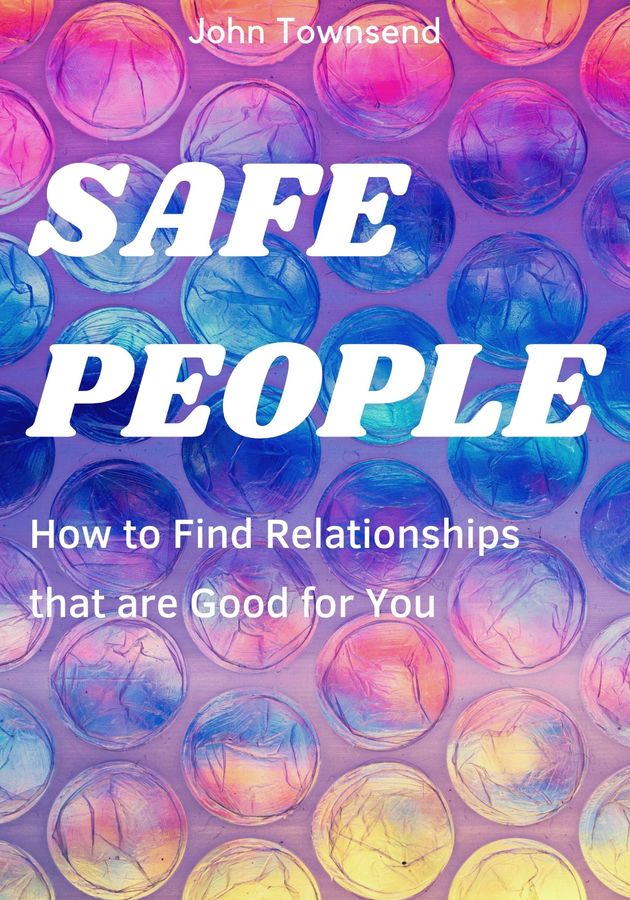Born in Cairo to Egyptian parents, journalist Alya Mooro moved to London at the age of eight and, apart from one year when she was 13, has lived in the United Kingdom ever since. As a result, she is in the unique position of comparing the West and the East, and especially their stereotypical ideas about the roles of women in society. So, get ready to learn how it feels to live as a Middle Eastern woman in the West – both within and outside stereotypes!
Beauty: when you learn how you’re supposed to look
In theory, the “other-race effect” is the tendency of people to more easily recognize faces that belong to their own racial group, and to confuse individuals within other races. In practice, it is what caused the Golden Globe’s Twitter account to confuse America Ferrera for Gina Rodriguez.
The same thing happened all the time to Mooro while she was growing up. She was often mistaken for other “brown” girls in her class; the fact that these girls – an Egyptian and a girl from Pakistani-Italian descent – were also two of her best friends didn’t help. Moreover, since brown is neither black nor white, Arab girls like Mooro are often forced to pick which “side” they belong to while in school.
It’s not the other children’s fault. Through the media, they are constantly fed unrealistic, stereotyped portrayals of non-white people. For Arab minorities, things went from bad to worse after 9/11. A 2016 study found that only 8% of scripted shows had season regulars of Middle Eastern origin. Not only that, almost 80% of them were portraying either terrorists or tyrants, soldiers or special agents. As you would guess, almost all of them were men, as well.
But, then again, it’s no secret that women are subordinated to men in the “highly gendered” Arab cultures, where there is usually “a profound and all-encompassing emphasis on being ‘well put together.’” There is also a very specific idea of what being “well put together” entails: “straight hair and smooth, virtually hairless bodies” in addition to “an expectation to be manicured and well dressed, not to mention in good physical shape.” Because of these high standards, most Arab girls have their first depilation at age nine, and a large number start chemically straightening their hair in their early teens.
Being an Arab girl raised in Britain, Mooro had to face additional pressures, because she had to meet the impossible Western beauty standards as well – despite her biology. For years, that meant uncomfortable jeans, dubious hair-straightening practices, and a lot of self-doubt. Fortunately, an unlikely hero by the name of Kim Kardashian, who is half-Armenian, challenged the beauty standards of the West, and Mooro could finally start finding beauty in her own body.
Sex: when you are not supposed to like it
As far as women are concerned, most Arab cultures are built on a peculiar contradiction. Namely, while training women to be “almost wholly preoccupied with their body, hair, eyelashes and clothes,” they also have very strict rules concerning female sexuality, warning women against engaging in any kind of sexual relationship until marriage.
Often this contradiction results in bizarre sociopolitical consequences. For example, in Egypt, if a man is caught having sex with a prostitute, it is the woman who is put on trial and imprisoned, with the man being called upon to testify against her. From the world of more personal stories, the sister of one of Mooro’s friends in Cairo was dumped by her fiancé for not being a virgin at their wedding – even though she had lost her virginity to him!
At the age of 13, when Mooro was starting to explore her own sexuality, her family moved back to Cairo for a year. When she came back to London afterward, she experienced a cultural shock. In Egypt, she had to hide to kiss a boy and then later deny it ever happened. In the United Kingdom, however, she could go to a party, have sex with a stranger and tell everyone about it (everyone but her immediate family, of course). Sex was shameful for the Arab girl inside her – but it was liberating and not a big deal for her English friends.
Living under the burden of such contradictions wasn’t easy for Mooro. In fact, it was quite difficult. Torn between these two extremes, she first slept with a boy – a guy whom she calls Satan – at the age of 15. The boy was actually her friend’s boyfriend, but that wasn’t what made Mooro feel guilty – it was the act itself. So, even though it happened under questionable circumstances, she told nobody about it and even lied to her mother about it when the story reached her. After all, more than 5,000 women worldwide are murdered by their families due to similar stories coming out. It took Mooro years – and a few hypnotherapy sessions – to overcome the idea that sex is dirty and learn to enjoy it.
Marriage: when you’re supposed to be a “good Arab wife”
After Mooro’s first sexual experience, her mother gave her the “sex talk.” Listening to it, she realized that her desires didn’t really matter and that, in Arab societies, being a woman is more difficult than in a Western society. The expectations go beyond beauty and sex – they also encompass love and marriage and everything that comes after.
Just a quick comparison. In the Arab world, a woman is expected to get married and is deemed unsuccessful if she doesn’t, regardless of what else she may achieve. Consequently, most women in the Middle East get married early, often just out of their teenage years. On the other hand, the average age British women marry – according to the Office of National Statistics – is now 35! Practically every second marriage in Britain ends in divorce, while only three out of 20 married women get divorced in the Arab world.
But that’s not strange at all. In the highly traditional and patriarchal Middle East, divorced women are routinely blamed for failing to live up to their husband’s expectations, and are treated by other men as “damaged goods.” Sometimes, even an extramarital affair isn’t considered a good enough reason for separation by the community. It’s widely believed that a man’s infidelity is the result of his wife not keeping him sexually interested.
To make matters worse, in some countries such as Jordan, divorced mothers are not even allowed to remarry by law. In others – and Egypt is not an exception – the laws don’t recognize interfaith marriages and refuse to give birth certificates to children born in such unions. Between being considered a failure for not marrying by her community and embracing her newfound freedom in the West, Mooro chose the latter.
Much more than in finding a lifelong partner, she is currently interested in building the lifelong relationship she’s already in: with her self. “The greater freedom is to be who you actually are,” she writes, “to be able to live your life in the way you deem best, free from any sort of restriction to do that, or fear of repercussions for doing so.”
Religion: when you are “technically Muslim”
During her year-long stay in Cairo at the age of 13, despite all the societal restrictions on her body and soul, Mooro also felt accepted and welcomed. She was surrounded by people who looked and behaved like her, by people who didn’t think of her beliefs as strange or outdated. In London, both before and after the Cairo year, Mooro could never go beyond saying that she is “technically Muslim” when asked about her religion.
She felt even more ashamed about her religion after the tragic events of 9/11, which happened when she was 12 years old and which, according to her, “ushered in a new era, one full of stereotypes and preconceptions” surrounding people from her part of the world. The resulting Islamophobia turned all Arab men into terrorists, and all Arab women into illiterate, secluded, submissive Muslims. Even today, if you google images of an “Arab woman,” you’ll happen upon hundreds of eyes staring back at you from beneath black niqabs and hijabs.
But the Arab world consists of 22 countries and has a combined population of almost 400 million people. Labeling all of them as pious Muslims is the same as labeling all Europeans and Americans as Christian fundamentalists. In reality, in one of the most devout Islamic countries, Saudi Arabia, half of the 10 most-watched YouTube channels are satirical shows. Moreover, the number of divorced parties in the country is constantly on the rise.
However, in consequence of being constantly bombarded with stereotypical images of Muslims in the West, Mooro rarely felt at ease with her religion in London. She could never say she was a Muslim without heralding that word with an adverb such as “technically” or an adjective such as “moderate” or “secular.” She now knows why. Even though the mainstream Western culture has produced two very distinct images for casual and pious Christians, the idea of a “secular Muslim” is sorely underrepresented in the media. In fact, one could also say it’s virtually nonexistent.
Gender: when you are (not) a feminist
In the West, Islam is not only seen as a security threat but is also often thought of as the main cause for gender inequality and sexism in the Arab world. This is only partly true, because it fails to take history into account. During the Islamic Golden Age – traditionally dated from the 8th to the 14th century – Islam actually improved gender equality and up until the Renaissance, it was the West that trailed behind. For example, Arab women were allowed to receive inheritance long before European women could even fantasize about similar laws.
Things are very different today. According to the Global Gender Gap report, gender imbalance is the highest in the Arab world and Africa. The list of the Top 10 worst nations for gender equality is dominated by Middle Eastern countries, as it includes Yemen, Syria, Iran, Lebanon, Saudi Arabia, and Oman. Since Mooro could see traces of this gender gap in the West as well, she recently decided to start identifying herself as a feminist. In her community, being outspoken about your views is considered a very bad trait if you are a woman. Fortunately, that idea is precisely what she’s fighting against.
“As women,” she explains, “we are taught to place importance on another person, be that our husbands, our fathers, our mothers, or our extended circles. We are taught to be caregivers instead of giving that love to ourselves. We’re taught to hold our tongues and, in doing so, to suppress our own instincts and desires lest we offend or cease to be ‘loveable’. We’re taught to aspire to be desired, influencing everything from the way we dress to how we converse, whether we consciously realize it or not. We’re taught to view ourselves through the eyes of others instead of assessing our own sense of worth.” It’s time women stopped doing that, exclaims Mooro, for that’s where gender equality essentially starts.
Final notes
“I’m a hybrid,” writes Mooro in the beginning of her debut book. “I never really thought about it growing up, but I feel it now. I am British, but I’m also Egyptian. I am both and consequently neither.”
Only someone who is “both and neither” could write a memoir such as “The Greater Freedom,” a heartfelt and well-researched exploration of cultural stereotypes. To paraphrase a review, we need more books like it – and more writers like Mooro.
12min tip
Explore your identity. Name your constraints. See what’s holding you back from expressing your truest self. That’s where freedom starts.





























